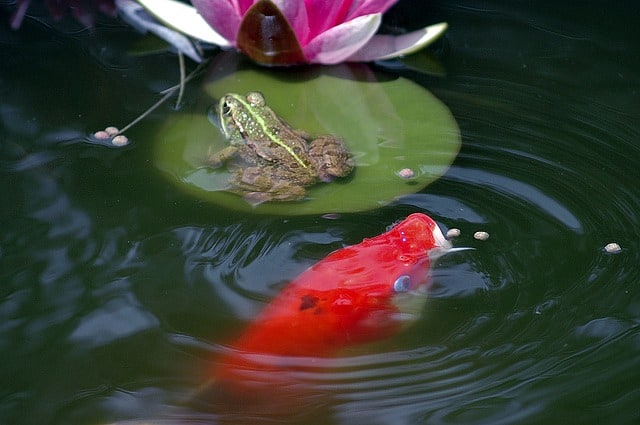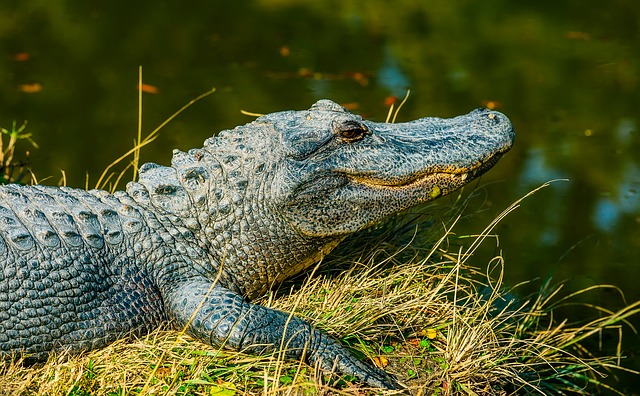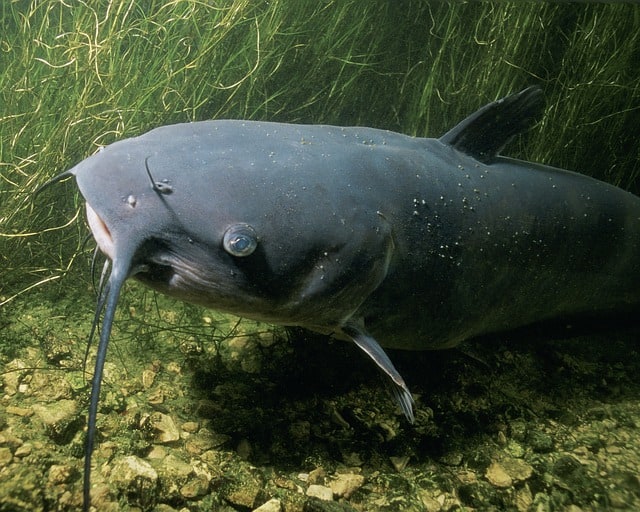Do you have a small pond in your backyard? Maybe it’s time to consider catfish. Catfish are great for ponds because they will eat any kind of food scraps that might be floating on the surface, and they take care of pesky bugs like mosquitoes and gnats.
In this blog post, I’ll frequently ask questions about what catfish do for ponds, how many are needed, and other tips!
Are Catfish Good for a Pond?
Catfish can be very good for ponds because they’ll clean material off the bottom. It’s this trait that has earned them the name bottom-feeder.
They also tend to be more resilient against changing conditions compared to other fish.
How Deep Does a Catfish Pond Need to Be?
Ponds should normally be around 3-4′ deep to provide ample supplies of water for your fish to swim around in. Catfish tend to sink to the bottom, making this depth important.
How Big Do Catfish Get in a Pond?
While they won’t normally get this size in a pond, the Fish & Wildlife Service has found evidence of channel cats over 56 lbs. so you do need to provide plenty of space for your fish. Even a fish half this size could take up a lot of area inside of an artificial pond.
Will Catfish Keep a Pond Clean?
Since they eat some of the material that grows on the bottom of the pond, catfish might be able to help keep your pond clean. They might find some organisms more appetizing than others, however.
Will Catfish Ruin a Pond?
Normally, catfish have a positive net impact on ponds because they help keep them clean. However, they can get into fights with other fish, especially if you have koi that are smaller than them.
How Many Catfish Can You Have in a 1 Acre Pond?
A full-sized one-acre pond can play host to approximately 90-100 catfish, though you might start to run into problems if they spawn successfully. Any more than this and you might start to see their growth stunted by lack of space and food.
What Do Catfish Eat in Ponds?
Worms, small invertebrates, and other miniature critters are favorites of catfish. Some species will actually eat the organisms that are responsible for scum and muck as well, though they won’t do as complete a job as a plecostomus fish would.
It’s important to note that larger catfish might eat smaller catfish and immature koi if left alone in the same pond together.
How Do You Tell if There’s Catfish in a Pond?
Their dull color patterns and distinctive facial features make catfish almost unmistakable. You may have to wait for the water to settle to see them, though, since they tend to be deep swimmers compared to other fish.
What Kills Catfish in a Pond?
Other catfish are one of the biggest killers of catfish, especially if there’s a size difference between them. If bass somehow gets into your pond, then they’ll certainly kill them as well.
Birds of prey might even swoop down if any of your catfish come to the top.
Why Do My Catfish Keep Dying?
Check to make sure that the water is oxygenated because your catfish might be choking. Fish that are of dramatically different sizes will have to be separated as well to avoid infighting.
Outside terrestrial animals as well as certain types of birds can kill them. When it rains, the water could also wash pesticides and other poisons into your pond so you’ll want to check this as well.
What Months Do Catfish Spawn?
Water temperature dictates spawning time, so if you’re further south you’ll notice it earlier in the year. In general, though, it should happen sometime in late spring.
You’ll usually see it happen sometime between April and the last few days in May.
Do Catfish Eat Algae in Ponds?
While catfish might eat algae, it’s not a total solution for the problem and you shouldn’t expect that the fish will keep your pond clean for you. They will, however, dine on it in the absence of anything else to eat.
Will Channel Catfish Make a Pond Muddy?
Channel cats usually won’t muddy up a pond by themselves, but they can if you’ve either overstocked it or the water is too shallow. Once you start to introduce too many fish into the ecosystem, they might end up making things dirtier.
You normally won’t see this happen unless the water is less than 3-5′ deep.
Can Catfish Live in Dirty Water?
Technically they can’t live in dirty water, but catfish are certainly more resilient against turbid and muddy water than other fish are. This isn’t dirty as far as fish go, but it might look dirty to humans who are concerned with making sure their ponds are crystal clear all the time.
Do Catfish Kill Other Fish?
If the other fish are smaller than the catfish, then they’ll potentially kill them. This problem gets worse when there are too many fish living in the same pond.
How Often Should You Feed Catfish in a Pond?
Depending on the time of year and the amount of natural food they get, feeding them 1-2 times a day should be sufficient. As they grow dormant, you can cut this down to maybe 5-6 times each week before ramping it up once they get active again.
What’s the Best Catfish Bait in a Pond?
Any of the popular catfish baits should work great in ponds since catfish tend to go for any of them there. Nightcrawlers are usually the favorite, as are shrimp and chicken livers in areas where it’s legal to use them.
Dip worms reportedly work equally well.
Does Anything Eat Catfish?
Predatory fish dine on catfish all the time. You’ll find any of the following chow down on catfish:
- Smallmouth bas
- Perch
- Walleye
- Striped bass
- Pike
- Largemouth bass
Larger catfish might eat smaller ones, which is a big issue for those maintaining decorative ponds. Ensure that the fish are all comfortable with one another and can coexist before you let them live in close contact.
What Can Make Catfish Grow Fast?
Proper feeding and a surplus of food will make catfish grow to impressive sizes within a year usually, which is how they tend to grow so big in channels. On top of this, you may find the following keeps them growing:
- Presence of fertilizer, which is usually considered a pollutant but makes plants grow
- Vitamins in the water
- Supplementation
- Cotton plant extract in water
- Lack of predators
- Few other fish competing with them
- Water that stays above 40°F
- Deep water
- Slow movement of the water
Hi, I’m John Stephens, chief editor and writer for Totalgardener.com. I’ve been gardening and raising animals for over 15 years starting with a small backyard plot in Northern Virginia where I grew corn, potatoes, squash, and using a high mulch technique called the Ruth Stout Method. I also raised ducks and small mammals for meat and eggs in a movable pen similar to the ones used by Joel Salatin. I later moved to Colorado where I experimented with growing greens using aquaponics inside. I eventually added a microgreens setup and home sprouting operation. I’m excited to share everything I’ve learned plus more from the other local gardening and animal raising experts I know.



